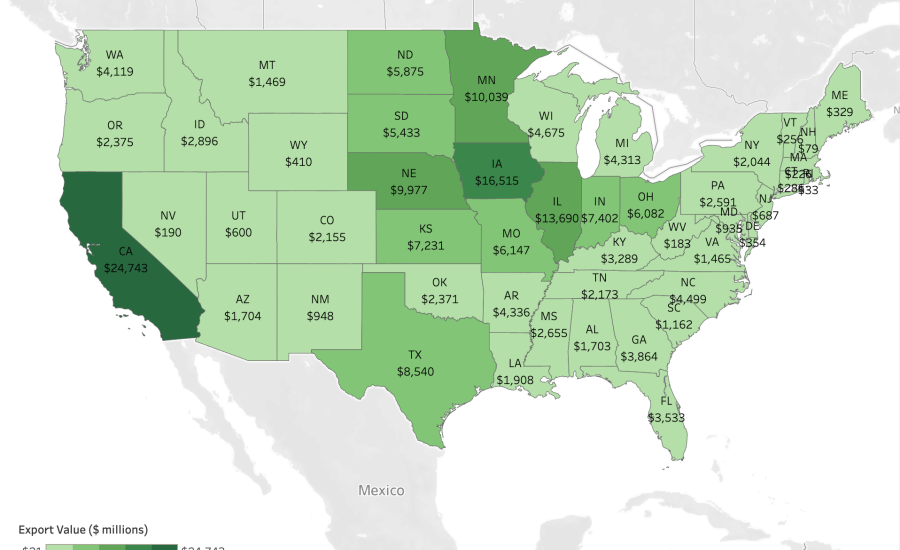Browse Data and Analysis
Filter
Search Data and Analysis
- 1662 results found
- (-) Processed Food Products
- Clear all
The People’s Republic of China’s (PRC) reorganized and restructured its food safety regulatory system in 2018-2019, substantially changing registration procedures and import requirements applicable to U.S. exports of feed and feed additives.
The Italian food-processing industry continues to be highly fragmented, characterized by growing consolidation of smaller companies. In 2023, U.S. agricultural exports to Italy were $1.8 billion, while U.S. imports from Italy were $7.4 billion. Italy...
Agricultural exports continue to play an important role in the U.S. economy, with every state contributing.
The Indian food processing industry is an important driver of the country’s economic growth. It is experiencing significant development and is innovating in the field of processed and packaged foods. The sector significantly contributes to India's gross domestic product (GDP), exports, investment, and employment.
Chile has a modern and developed food and beverage processing industry. The Chilean food sector is the second most relevant export sector in the country after mining. There are significant opportunities for imported food ingredients in Chile, as half of all ingredients used by the food processing industry are imported.
Peru has a robust food processing industry that is an integral part of its economy. The food industry contributes to nearly 27 percent of the country's industrial gross domestic product (GDP). However, the non-primary manufacturing sector, which encompasses food and beverage production, experienced a decline of 8.1 percent in 2023.
As the Philippines’ economic growth outpaces its neighboring countries, the market presents stronger opportunities this year for U.S. food and beverage ingredients, including wheat, dairy products, poultry, pork, beef, starch products, processed and dried fruits, food preparations, and soy.
Though relatively small, the Costa Rican food processing sector relies on U.S. exporters to maintain critical supply chains. Proximity, reliability, and familiarity help make the United States the preferred supplier for a wide range of food processing ingredients, including wheat, corn, and animal proteins.
In 2023, Mexico imported $51 billion of food ingredient products, of which 63 percent were sourced from the United States. Mexico’s food processing industry is the second largest in Latin America, behind Brazil, making Mexico a top destination for U.S. food ingredients.
The food processing industry represents the fourth-largest industry in Germany. According to the Federation of German Food and Drink Industries (BEV) estimates, Germany produced $238.9 (€ 218.5) billion of processed food and drinks in 2022.
Colombia’s food and beverage industry decreased by two percent in 2023 due to stagnating economic growth.
The Dominican Republic’s food processing industry totaled $2.91 billion for calendar year (CY) 2023 in activities categorized as “food industry,” while processed beverages and other products amounted to $2.68 billion over the same period.

